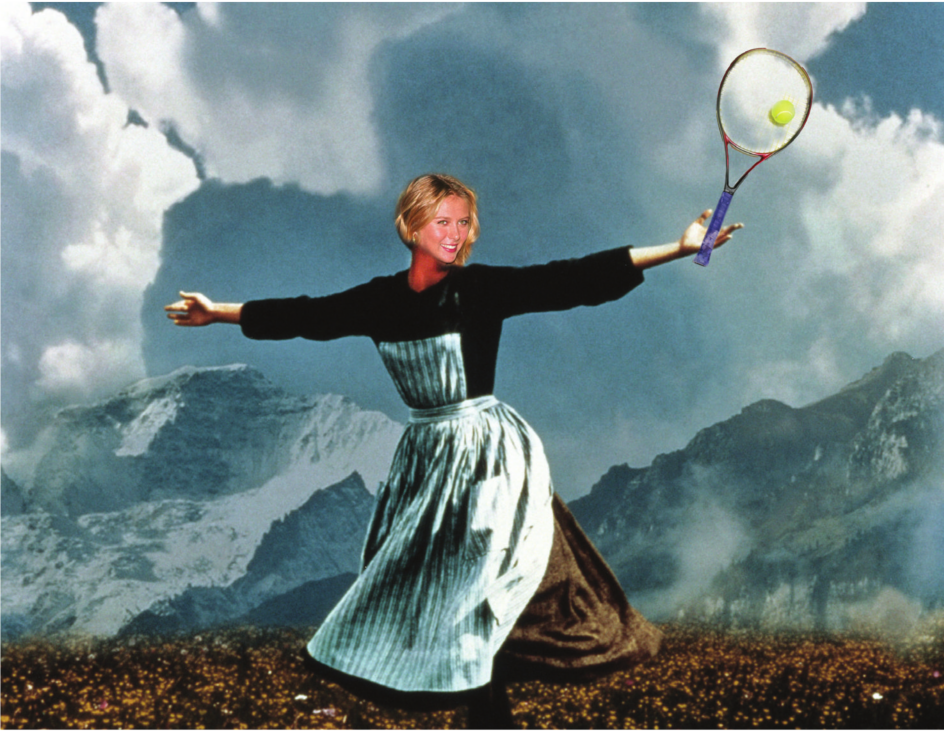Maria Sharapova is the very model of a modern high performance sports doping star
Former World Anti-Doping Authority (WADA) head Dick Pound once compared sports doping to porn. “You know it when you see it.”
Speaking a year before the 2008 Beijing Olympics, Pound clarified WADA’s stance: no one should have to be a chemical stockpile in order to be an athlete.
At that time, a 19-year-old Maria Sharapova had already won two tennis Grand Slam titles. And she was already taking meldonium.
Sharapova says she used it medicinally for 10 years to treat an irregular heartbeat and a grab-bag of other health issues, including bouts of the ?u, magnesium de?ciency and the ?rst signs of diabetes.
But pharmacologists and anti-doping experts interviewed by The Medical Republic have little sympathy and much scepticism for the tennis star.
In short, they said Sharapova’s story had more holes in it than a tennis racquet.
“It’s rubbish,” according to former deputy chairman of WADA’s health medical research committee Dr Ken Fitch, who has been to 12 Olympic games and spent nine years as the Australian team’s chief physician.
The suggestion an elite tennis star needed to take a drug medically indicated for cardiac ischaemia, de?es belief.
“Sharapova said she had an irregular heartbeat. That’s not cardiac ischaemia,” Fitch said. “It’s not feasible that a girl who plays at a level like that has cardiac ischaemia.”
On the WADA list, meldonium is classi?ed as a metabolic modulator, along with insulin and insulin mimetics.
Further, meldonium had nothing to do with magnesium de?ciency which was easily treated with a supplement.
Professor Andrew McLachlan, a pharmacologist at the University of Sydney who specialises in sports doping, said athletes were clearly using meldonium.
“We can’t exactly put our ?nger on what is the bene?t. Sometimes it’s just word of mouth, sometimes it’s covert pharmacologists providing information to athletes.
“Anti-doping bodies are always playing catch-up and there are always smart and corrupt people out there.”
Professor McLachlan said athletes could receive a therapeutic use exemption to take a banned drug if they showed they had a genuine medical need. “A panel of experts, appropriate clinicians, would take a look at any medical problem and decide.”
It is also unclear why Sharapova took the drug for 10 years when the Latvian manufacturer recommends the normal course of treatment is between four and six weeks, repeated up to three times a year.
On a chemical level, meldonium inhibits the enzyme which converts lysine into L-carnitine, preventing fatty acids from being converted into cell-damaging compounds under oxygen stress.
The drug is thought to guard against cell damage during ischaemic episodes such as angina. Meldonium was also thought to increase oxygenation in the circulation, with a corresponding impact on endurance and recovery, Dr McLachlan said.
In theory the drug might have improved Sharapova’s performance on court, helping her play harder and for longer. But that doesn’t mean it works.
Little is known about its impact on the healthy, and most of the research is on rats. Some think meldonium helps the body burn carbohydrate rather than fat, a more e?cient process which allowed better substrate usage in an endurance event, Dr Fitch said.
“Another [belief] is that it’s supposed to make you think better. Well, it may make you think better if you’ve got cerebral ischaemia,” he said.
Dr Fitch suspects it had “precious little” impact.
Revelations the drug was designed by Latvian scientists behind the iron curtain as a non-antibiotic growth promoter for livestock and poultry did little to assuage doping concerns, with one pharmacologist saying the scandal had a “distinctly eastern European ?avour”.
Neither did reports that meldonium was adapted for human use to aid Soviet troops ?ghting in Afghanistan’s oxygen-thin alpine ranges.
Dr Fitch said the revelations recalled Cold-War era Soviet sports programs. The Russians were the best in the world at doping, he said.
And Russia, it should be remembered, remains banned from world athletics after its state-sponsored doping program was exposed last year.
So it was not really surprising WADA banned the drug from January 1 this year on evidence athletes were using it to boost their performance by increasing their endurance and shortening their recovery time.
On the WADA list, meldonium is classi?ed as a “metabolic modulator”, along with insulin and insulin-mimetics.
The drug has clearly garnered some attention since the Sharapova revelations.
Online, drug retailers were apologising for lengthy supply delays after a spike in orders for the drug, marketed as Mildronate. Rupharma.com, which bills itself as a one-stop store for the best Russian nootropics (smart drugs or cognitive enhancers) and supplements, was taking pre-orders for the product due to very high demand.
The retailer’s website recommends sportspeople take a large dose of the drug to boost their endurance and recovery: 500-1000mg twice daily 40 to 60 minutes before workouts for 14 to 21 days during competitions.
The advice was likely to have been heeded by hundreds of healthy athletes, including swimmers, cyclists, runners and gymnasts, at the 2015 European Games at Baku, Azerbaijan.
A 2015 doping study published in the BMJ pointed to widespread and inappropriate use of the drug at those games.
The study, led by Australian doping researcher Mark Stuart, found an alarmingly high use of meldonium by athletes. Tests con?rmed 13 medallists, including six gold medallists, at Baku tested positive for the substance.
The scientists estimated between 114 and 490 athletes at those games were likely to have been using the drug.
They can’t all have had dodgy hearts.
In an open letter published after her public mea culpa Sharapova thanked her fans for their support and loyalty, saying she awoke to an email inbox full of love and compassion.
That may be the case. But there seems to be little of the same from anti-doping experts.


